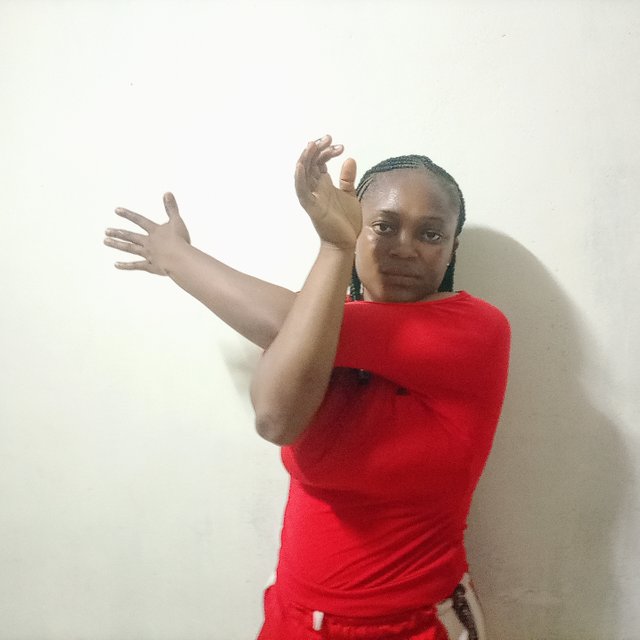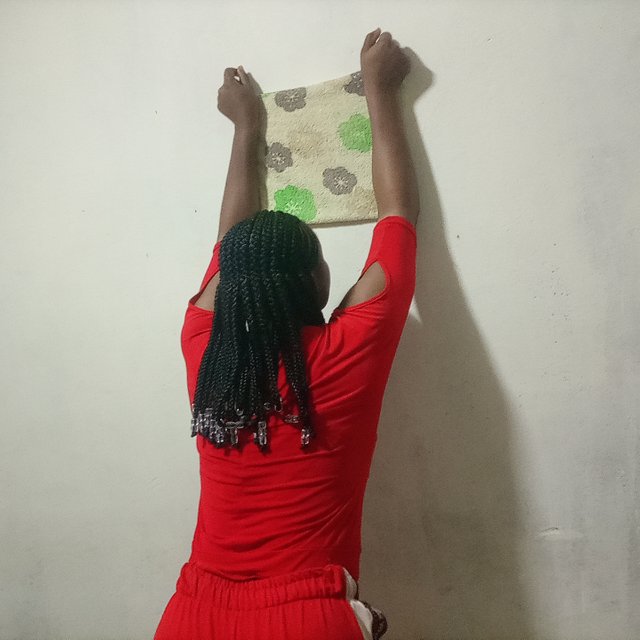Steemit Learning Challenge-S22W4; Rotator Cuff Tendonitis"

Greetings teachers and students!
Here is my homework post for week4 lesson.
What's rotator cuff tendonitis? Write in your own words after getting knowledge from the lesson post.
Rotator cuff tendonitis is an inflammation (swelling) that occurs in the tissue (tendon) that connects the muscle and the bone in the shoulder.
Causes
There are numerous causes of rotator cuff tendonitis the common one are;
•Overuse or repetitive use of the shoulder joint
This is when the tissue has been used beyond limit which results in inflammation.
• Sudden trauma or injury to the shoulder joint
Conditions like this can be caused by heavy lifting,heavy lifting can irritate or damage the tendon.
The rotator cuff can also be injured in an incident during falls or accidents.
• Can also occur due to sports participation.
Often engaging spots that stretches the shoulder blades can cause rotator cuff tendonitis as the tissue get overused and irritated.
• Age-related wear and tear of the shoulder region.
Rotator cuff tears can also happen due to the breakdown of the tissues, which may happen as part of the aging process this mostly occur with people from age 50 and above.
Symptoms
• Swelling the the tissue get irritated its results in swelling.
• Skin discoloration or redness discoloration mostly happens around the inflamed area.
• Hearing or feeling a cracking or clicking sound when the shoulder is in motion.
• Stiffness
Range of motion is limited due to stiffness that occur in the affected area.
Stages
• Stage 1
This is when the inflammation and irritation had just occurred.
• Stage 2
They symptoms began to become more visible at this point though the tendon has been partially torn causing the patient to feel a clicking or snapping sensation while performing range of motion.
• Stage 3
This stage is the most severe stage because at this point the tendon has completely tear.
How would you diagnose rotator cuff tendonitis? Any clinical investigation or assessment tests?
Having to diagnose rotator cuff tendonitis in a patient i will consider the following;
- History taking about family.
- occupation.
- past medical, and surgical history.
This three factors can give solid reason a person is suffering from rotator cuff tendonitis.
Also a thorough physical examination by a physician or physical therapist can help diagnose rotator cuff tendonitis.
Other diagnosis include;
X-ray,
Ultrasound
MRI
Arthroscopy
This is to assess arthritis or any tendon ruptures muscle damage.
special test
It is important to perform some special test to confirm the diagnosis.
• Neer Test
This test is to identify possible subacromial impingement syndrome.
• Jobe's Test
This is an orthopedic examination used to test the stability of the shoulder.
• Speed Test
This test is to evaluate the presence of superior labral tears or bicipital tendonitis.
• Hawkins Kennedy Test
Is used to assess the shoulder impingement.
• Yergason Test
Yergason test is used to test for biceps tendon pathology, such as bicipital tendonitis.
Try to practice at least 3 exercises that you have learned from the lesson.
Scapular Squeeze
This exercise is performed to strengthen the trapezius and rhomboid muscles.
Cross Body Shoulder Stretch
This exercise help improves shoulder mobility and flexibility ability.
Walk Slides
This exercise help o improve range of motion in the shoulder also help reduce pain.
Share your review after performing these exercises either on yourself, a healthy individual or a patient.
After applying heating pads for 10 minutes i practice the three exercise to see how each of it can help someone suffering from rotator cuff tendonitis each of the exercise has important area they fit in perfectly which helps in fast recovery, i also learnt that exercise is good for the health in general but knowing the right exercise to perform in a certain illness is a great step to healing.
I will love to invite @dequeen @Max-pro @alysaa to participate in this contest.
Cc.
@ashkhan.


Thank you for understanding the lesson and sharing your assignment; I hope that you will enjoy this week's lesson and try to implement it in your life if you see any such case.
Observations
Task 1 (2.8/3)
You have shared a great knowledge about rotator cuff tendonitis, its symptoms, causes and it's stages. But it would be better to add the name of stages with it. I appreciate your effort.
Task 2 (2.5/3)
In the second question, you tell us about how you have to assess a patient by doing physical examination, history taking, special tests and investigations. But it would be better to add explanation of special tests and investigations too. A bit more depth require to complete the answer. Good.
Task 3 (4/4)
You try the wall slides, cross body shoulder stretch, and scapula squeeze. You did the wall slides, cross body shoulder stretch, and scapula squeeze correctly. Always remember to apply heat pack in chronic condition and ice pack in acute condition before performing exercises to relax the muscles and reduce stiffness. I appreciate your efforts.
Overall you made a great attempt to answer all the questions. I appreciate your efforts. But next time try to avoid the above written suggestions. Keep learning and try to implement your knowledge to the people suffering from rotator cuff tendonitis or any type of shoulder issue. Thank you.